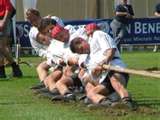 The citizens of Eden, a class from Hudson High School in Hudson, Massachusetts, are working to create laws that will better their country and (hopefully) give some citizens more well being points. In order to help Edensians write these bills, their Instructor Ken High posted this assignment,
The citizens of Eden, a class from Hudson High School in Hudson, Massachusetts, are working to create laws that will better their country and (hopefully) give some citizens more well being points. In order to help Edensians write these bills, their Instructor Ken High posted this assignment,
“As citizens or government representatives, it is your job to pass laws and policies that will help you gain Well Being points or fulfill Hidden Agenda goals. Therefore, each of you must persuade the government by proposing at least one bill that you want to be passed as a law. Your classmates can then comment on your proposal and engage in a discussion before the lawmaking session tomorrow.”
In response, Edensians came up with many useful ideas. Each citizen had different goals in mind, however, when creating these laws. Citizen Trevor wanted to be sure the president as the head of the government did not hold too much power,
“Any property bought by the government should be used for the government. Not for the president to use for his own purpose. What ever the government spends the money one, its only for governmental use.”
Citizen Shannon responded with,
“Why would we have the government use the property they bought for the government it should be used for the people so that they have what they need to survive. I think you are saying this because you are a reprisentive and think that you should get special treatment because of it.”
“I propose that we make a law saying that anything bought by the government should be used for the well been of the people.
I also propose that we pass a law to keep the government from seasing and buying any citicen ouned land.”
While her fellow citizens worry about individual versus government rights, Citizen Rachel felt it was just as important to protect the environment,
“I think that a law should be passed to keep a certain amount of wilderness hexes from being developed on. For instance, only one wilderness hex per year. This will help ensure that we still have enough wilderness hexes to keep our well-being points high and the citizens happy.”
In a third vein,Citizen Melissag wanted to ensure the economy had boundaries as well,
“I think that agoodlaw that should be passed is one that allows a cap unit prices.That way if someone wants to buy a food unit they do not have to pay $400 for one because that is ridiculous and based on what else every person has to buy like health care, power, education, security etc. having a food unit or any one of those other “necessary” units cost too much is not right. The price of units should be affordable but obviously not too low, so no one is making money.”
Edensians have a lot of interesting ideas for their country. It is obvious that Edensians care deeply about their country as well as their own self interests, however, it seems as though there is an underlying current of mistrust as well. While citizens can suggest as many laws as they like, at the end of the day, they must trust that the government officials they have elected will represent them. Will the government live up to these expectations or make choices to fulfill their own self-interests? Only time will tell….











